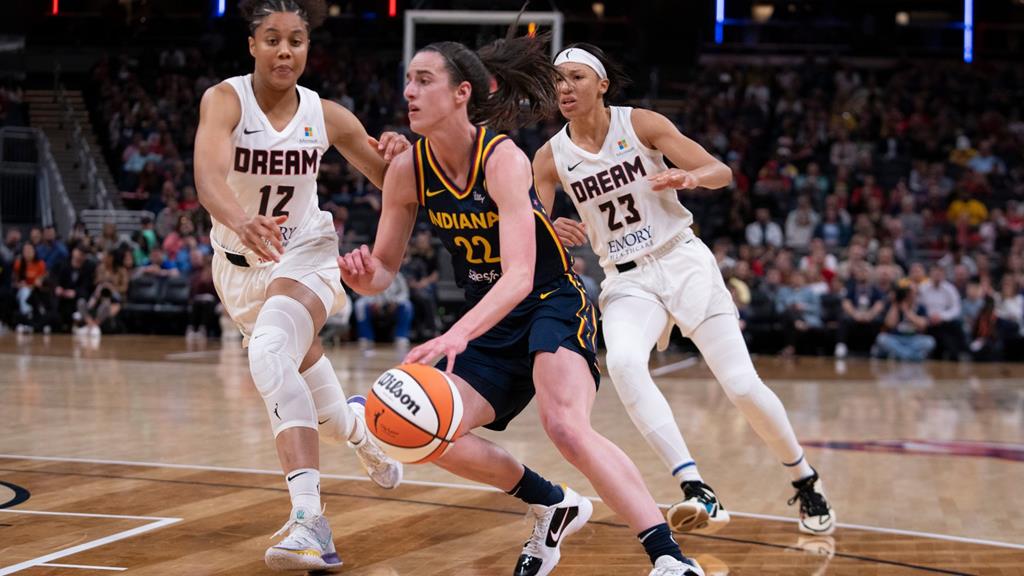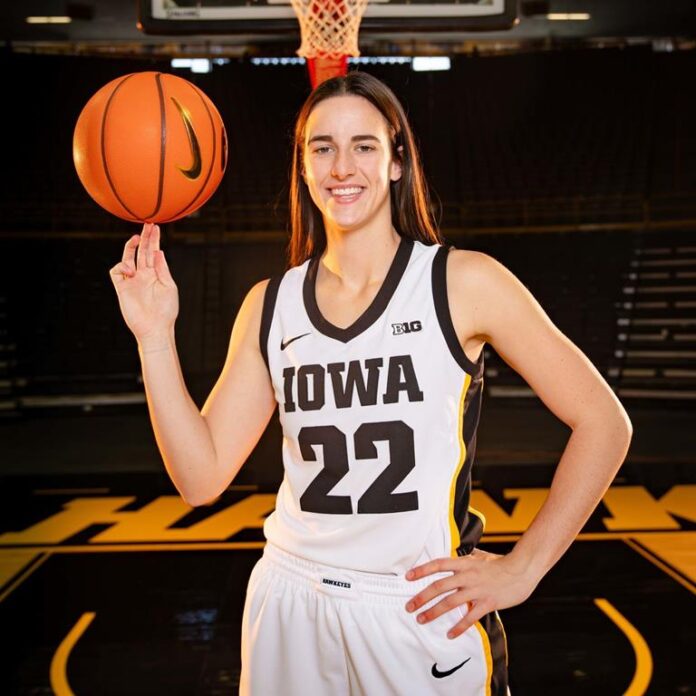Before becoming the first overall pick in the 2024 WNBA draft, the heavy favourite to win Rookie of the Year, and one of America’s favourite athletes, Clark enjoyed a prolific collegiate career.
She is the NCAA’s all-time leading scorer, two-time unanimous player of the year, and the only player in Division 1 history to lead her conference in both scoring, and assists in four consecutive seasons. Clark is also a two-time winner of the prestigious Honda Cup — awarded to the top NCAA women’s athlete based on athletics, leadership, academic excellence, and community service.
Clark, an Iowa native, graduated high school as one of the state’s leading scorers before becoming a University of Iowa Hawkeye. During her senior year, she was deemed a “cultural phenomenon,” selling out both home and away games and substantially growing her follower count on Instagram to over two million. Having that large of a public platform can be an overwhelming and powerful opportunity for a young athlete, just ask Lebron James.
The WNBA has seen a massive climb in ratings since Clark’s arrival. Clark’s game averages of 16 points per game (PPG), six rebounds per game (RPG), and seven assists per game (APG) are draws of their own; however, TV ratings have seen a stark rise specifically in match-ups against Clark’s long-time supposed rival, Angel Reese. Reese is no slouch on the court herself, with game averages this season of 19 PPG, 12 RPG, and 2 APG for the Chicago Sky. On June 23, the Sky and Fever contest brought in a record audience of 2.3 million average viewers to ESPN, making it “the most-viewed women’s pro basketball game in 23 years.”

The two players were first linked together in the NCAA, when Reese turned Clark’s signature “you can’t see me” taunt back onto her, in the fourth quarter of the title game. Reese also pointed to her ring finger as an indication of the championship ring she was about to win (quite a common occurrence in the NBA). The rivalry has divided viewers — some feel that race and gender politics are at play to villainize Reese and not Clark for acting out the same taunts.
Clark has made it known that she has no desire to push anyone’s agenda in regard to her race, being a target of hard fouls, or to misogyny around women’s sports. She stated publicly that “the women in our league deserve the same amount of respect. People should not be using my name to push those agendas… It’s not acceptable.” Regarding the rivalry, Clark said that for her and her fellow players it’s “just a game of basketball” and the media has turned it into something deeper.
Reese responded to the situation similarly. She stated, “Me and Caitlin Clark don’t hate each other… It’s just a super-competitive game. Once I get between those lines, there’s no friends. I’m going to talk trash to you. I’m going to do whatever it takes to get in your head the whole entire game, but after the game, we can kick it. I don’t think people really realize that.”
A comparison has been drawn between Clark and Larry Bird, former legendary basketball figure hailing from Indiana, who had an on-court rivalry with Magic Johnson… perhaps similar to Reese and Clark. Bird and Clark are both known for their game breaking dynamism, capturing substantial audiences, and for being the best white basketball players of their respective generations. As AP News puts it, “Neither Bird nor Clark were the first great white male or female pro basketball players…. But sports can be elevated by a heated rivalry, particularly when race is involved.”
Although Clark has been controversially left off the roster for Team USA in the upcoming 2024 Summer Olympics, she will be present at the WNBA All-Star game in Arizona on July 20. Reese will also be joining Clark on Team WNBA when they play against Team USA at the All-Star event; a rare occasion for the only two first-time All-Stars in the game to play as teammates. The two phenoms being the focal point of the All-Star game indicates that they are still the shining light of hope for the WNBA, despite not playing at the Olympics this year.
Clark once said that she wants her legacy to be what she can accomplish for the game of women’s basketball…and it is fair to say that no player is doing more for the WNBA than Caitlin Clark.


